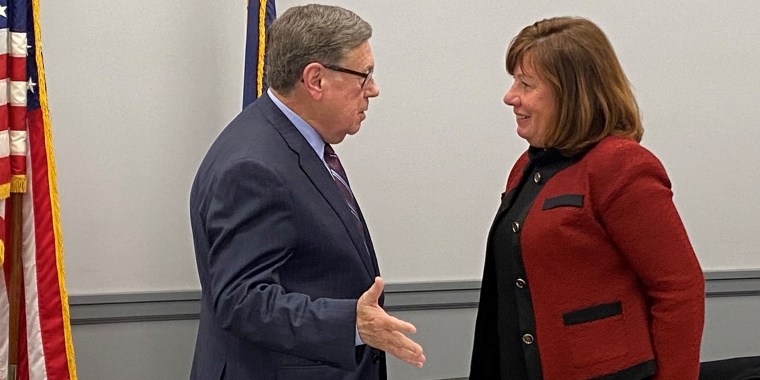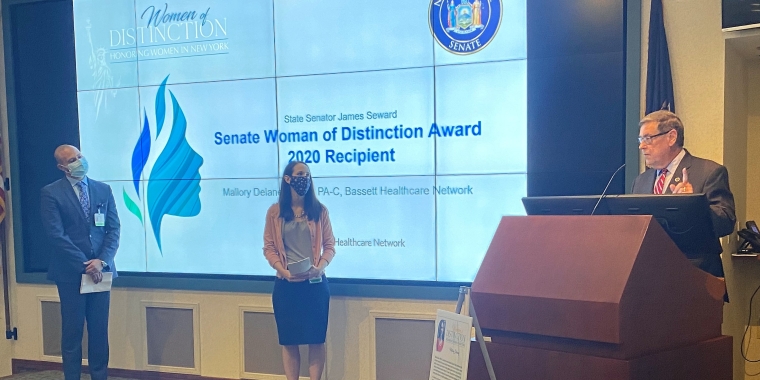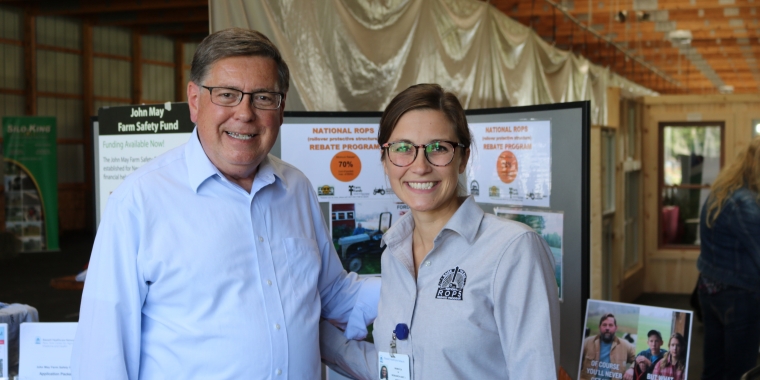
Budget Helps Our Farms
James L. Seward
Agriculture continues to be New York’s number one industry, and there are many innovative opportunities in agriculture that will revitalize our economy. About 25 percent of the state’s land area, or 7.5 million acres, is covered by 35,000 farms. New York is among America’s major agricultural states, ranking number 2 in apples and maple syrup, number 3 in dairy, grapes, wine and corn silage, number 4 in pears, and number 5 in floriculture. As a member of the Senate Agriculture Committee, I have worked to assist our state's dairy farmers -- whether it's a law we won preventing onerous state codes from applying to farm outbuildings or providing $30 million in last year's budget to help our dairy farmers get through a particularly rough time. The agriculture community from Buffalo to the tip of Long Island will reap the benefits of this year’s enacted state budget thanks to the efforts of the senate Republican majority and those of us on the Agriculture Committee. The agriculture portion of the 2008-09 budget included priorities such as funding for the New York Farm Viability Institute, Center for Dairy Excellence, Cornell Quality Milk Production Services and the New York Wine and Grape Foundation. The New York State Apple Growers and Maple Associations, along with "Taste New York," were funded within the $32 million agriculture budget. We have about 2 million acres of idle farmland in our state that we have to get back into production, to stimulate growth and prosperity. Our agriculture budget is designed to promote farming. This year’s budget negotiations were as difficult as I have ever been involved with. Despite these challenges, it doesn’t compare to the day to day financial struggles that our farmers endure. With that in mind, I fought hard for programs like the New York Farm Viability Institute, the Center for Dairy Excellence and Cornell Quality Milk Production Services. These organizations provide essential services for dairy farmers and agri-businesses throughout the state. The New York Farm Viability Institute (NYFVI), funded at $4.8 million, works with producers to achieve quality of life for families, neighbors and communities by helping to implement effective business plans, developing and promoting profit-generating production technologies and strengthening New York's position in local, national and global agricultural markets. The budget included $750,000 for the Center for Dairy Excellence, created in 2007 to facilitate dairy farm profitability and strengthen the industry as a whole. Cornell Quality Milk Production Services will also receive $1.3 million for on-farm diagnostic evaluations and treatment options for dairy operations. These services provide farmers with resources to improve the quality and marketability of their milk. Improving food production in New York is only one part of a multifaceted approach towards improving the agriculture industry in the state. Another vital piece is the promotion of locally grown foods and agri-businesses. Encouraging traditional agri-tourism activities, like winery tours and tastings as well as new approaches in promoting local food and agriculture are key ingredients in New York’s agricultural resurgence. The budget also includes $3 million for the New York Wine and Grape Foundation through matching grant programs that leverage industry dollars as well as marketing and promotion of New York wines and Concord grape juice. New York’s grape, and wine products produce more than $6 billion in economic value, including over 30,000 jobs to the New York State. The New York State Apple Growers’ Association received $750,000 for marketing and promotion of New York apple products. The Apple Growers’ Association represents five apple-growing regions of the state which produce over 3 million apples each year and account for 10,000 agricultural jobs on 694 family apple farms. The New York State Maple Producers Association received $150,000 in the state budget to increase the production of maple syrup and enhance its sale throughout the world. The association serves maple producers by providing educational programs and promotional assistance for the industry.
Share this Article or Press Release
Newsroom
Go to NewsroomMohawk Valley Nine Pledge Support for Remington
September 28, 2020

Senator Seward Pays Tribute to Senate Woman of Distinction
September 8, 2020


